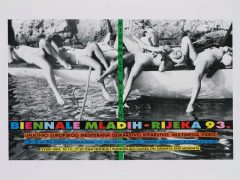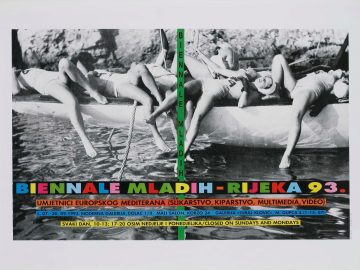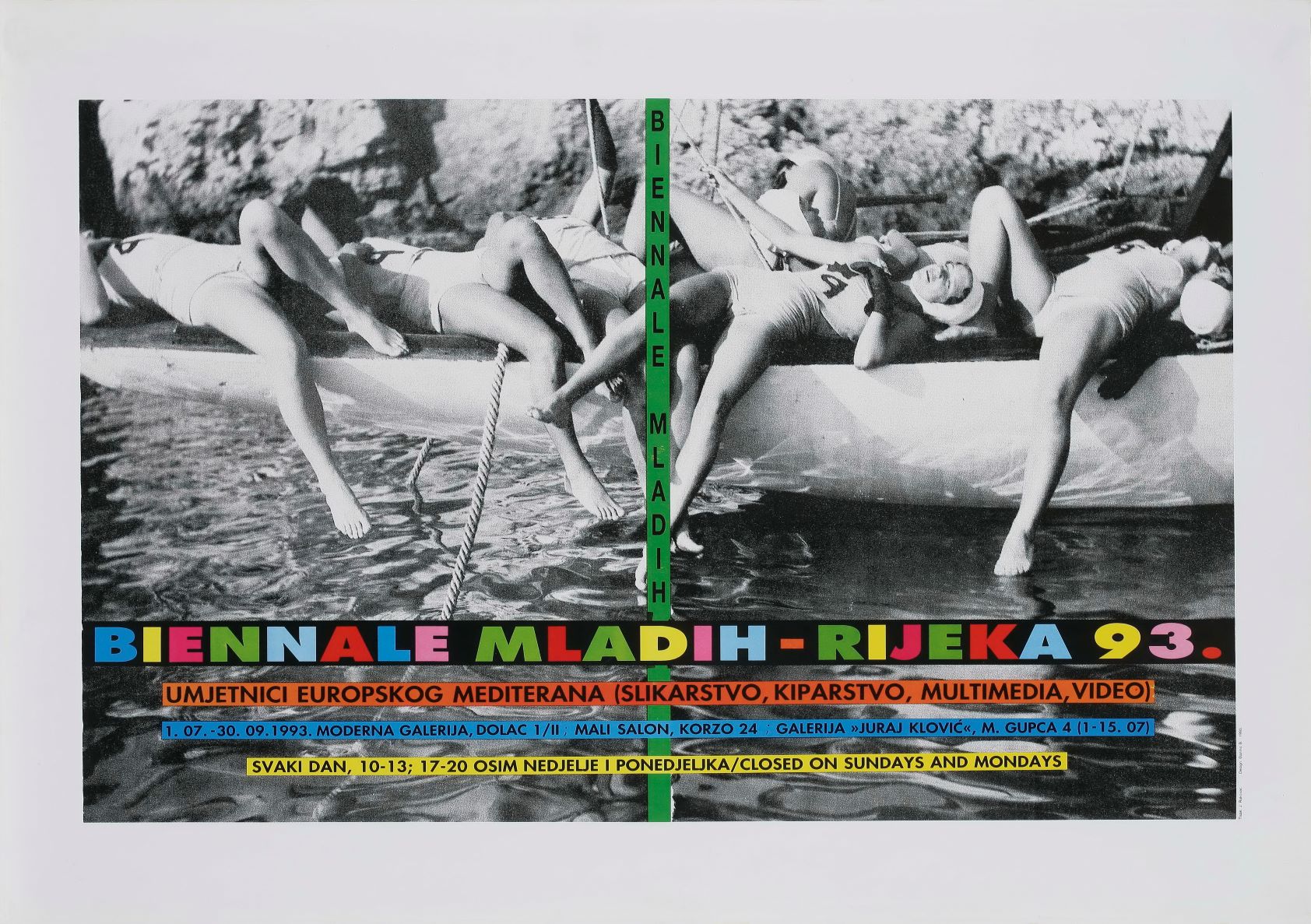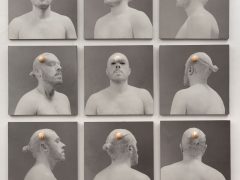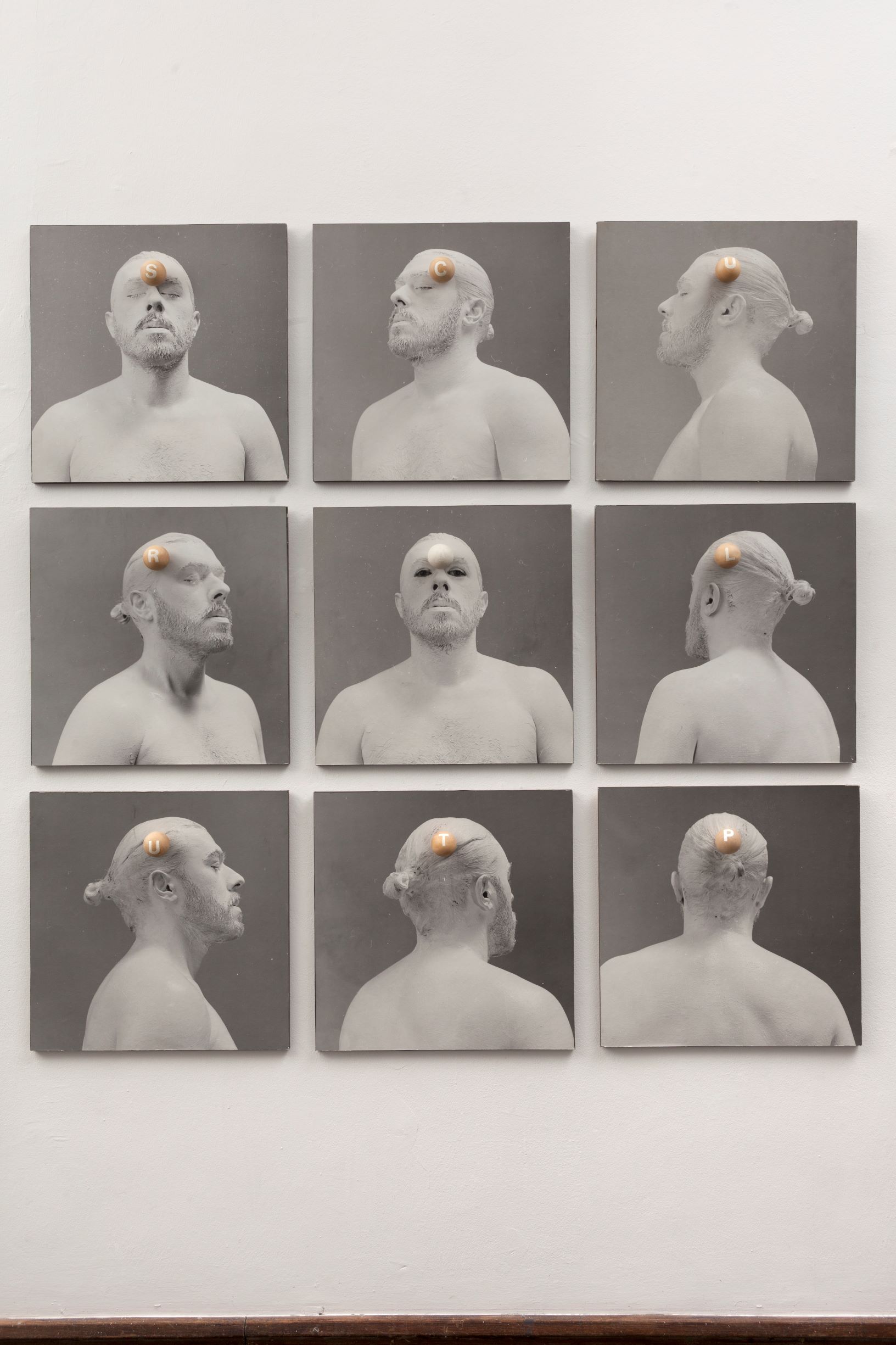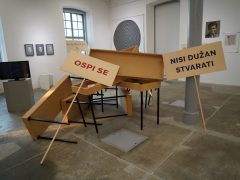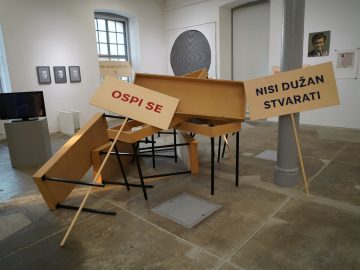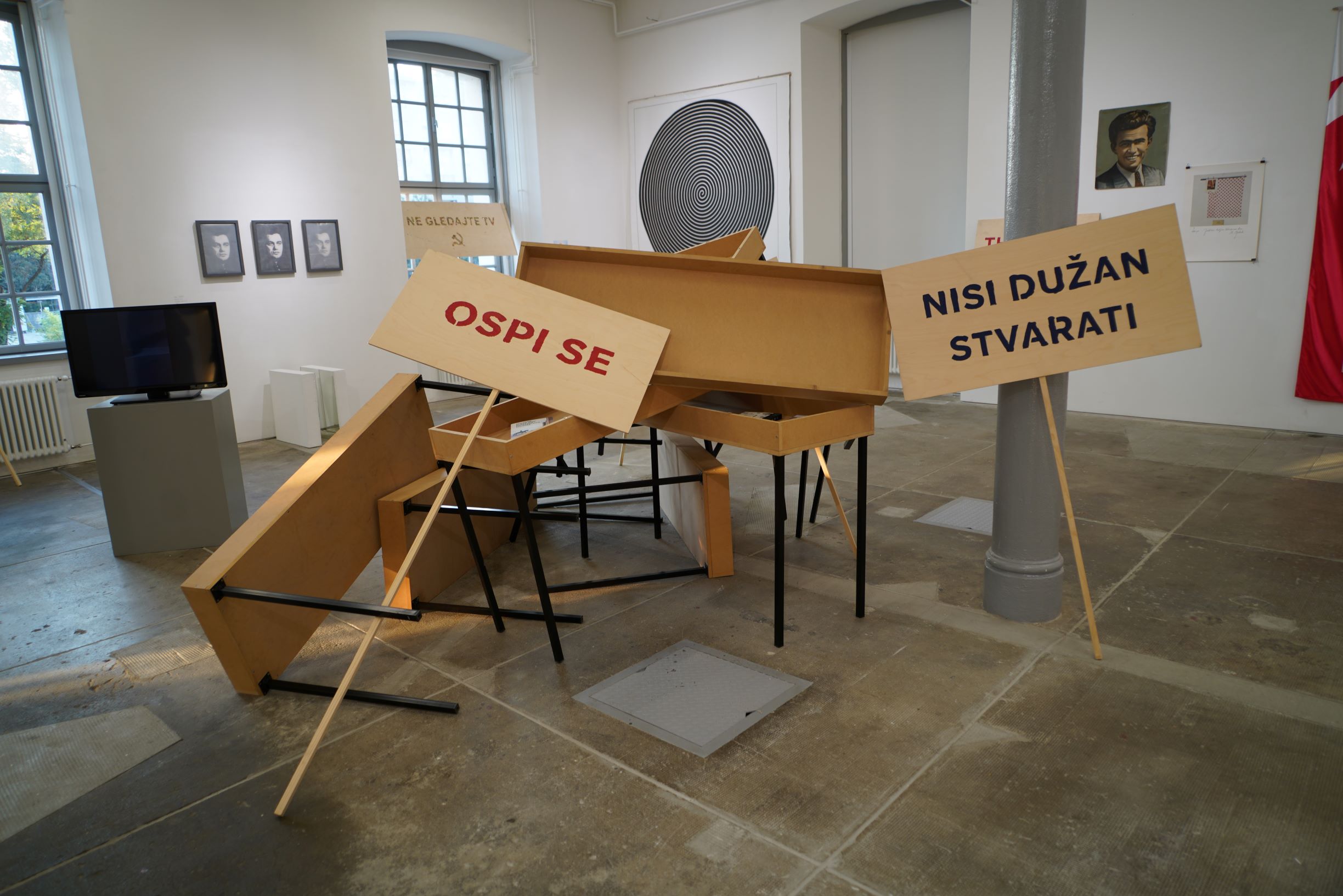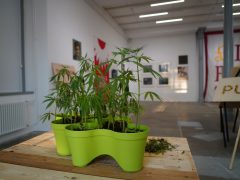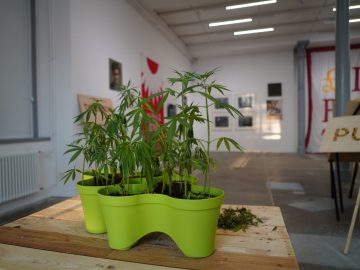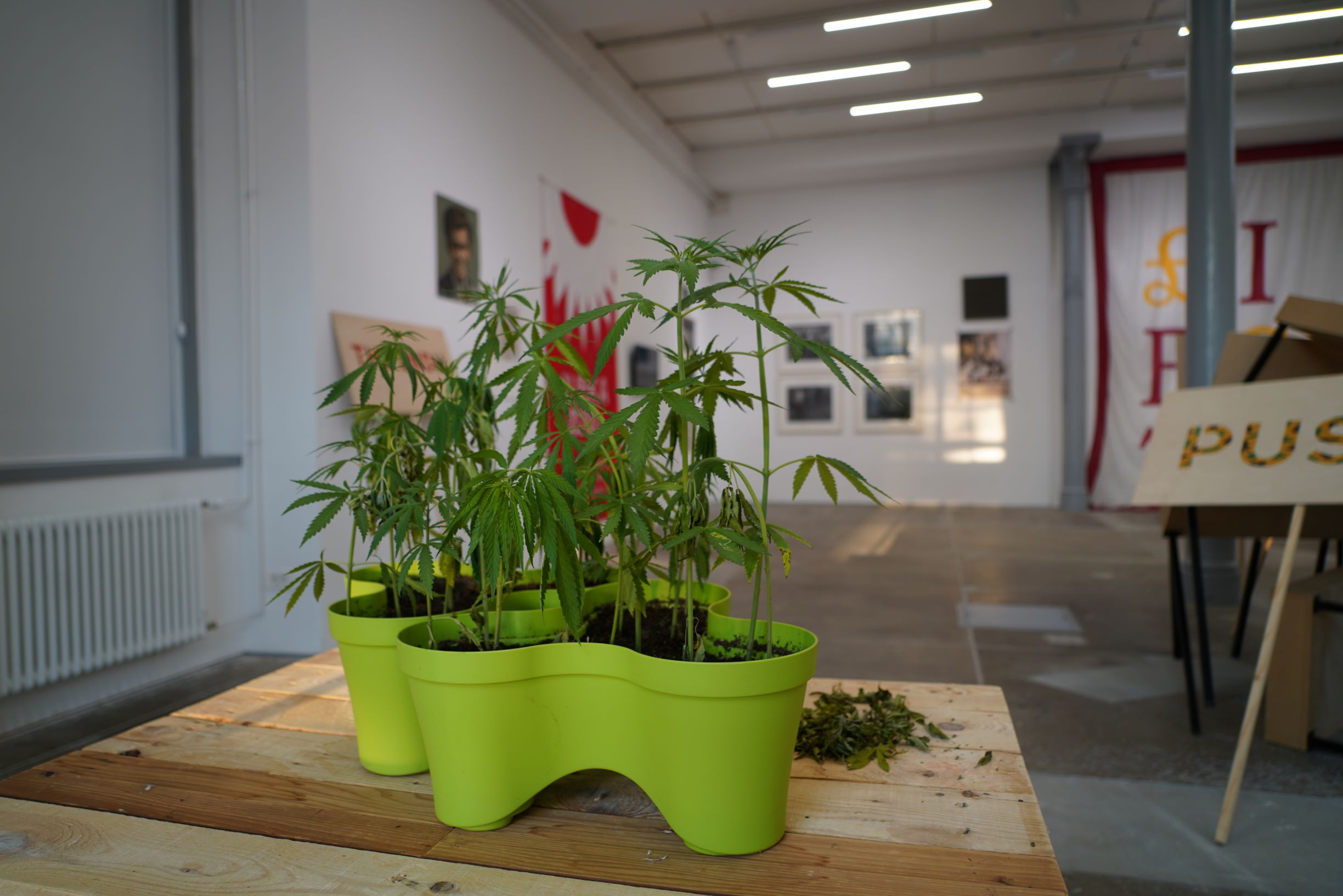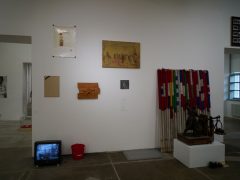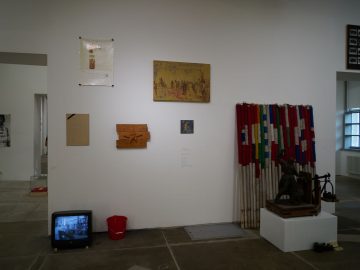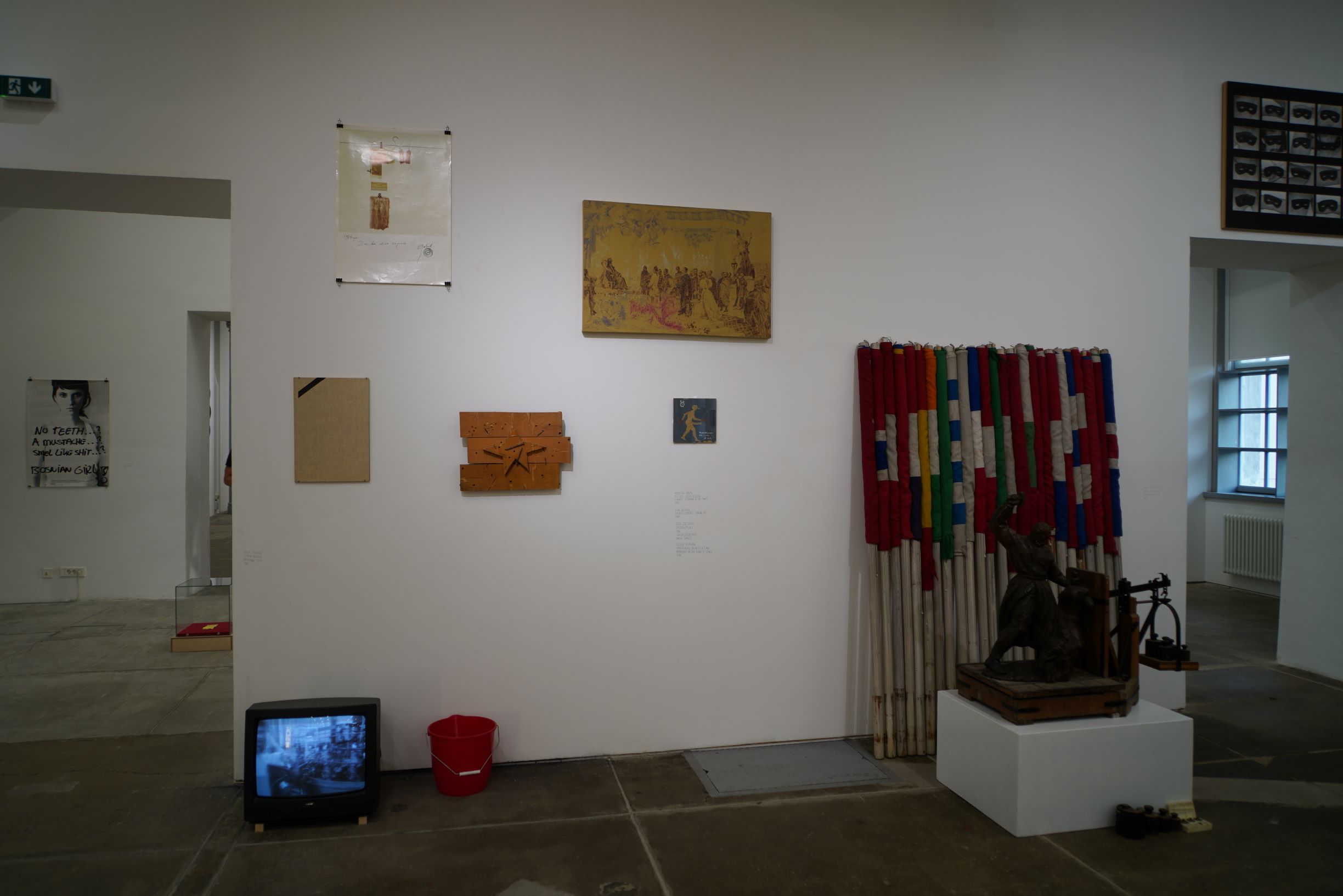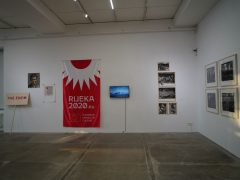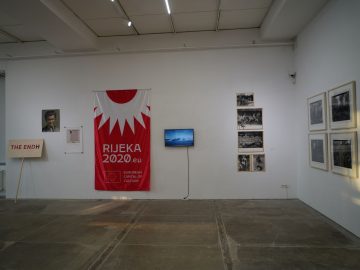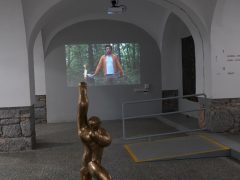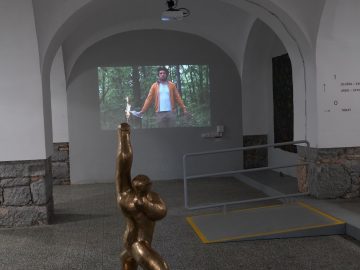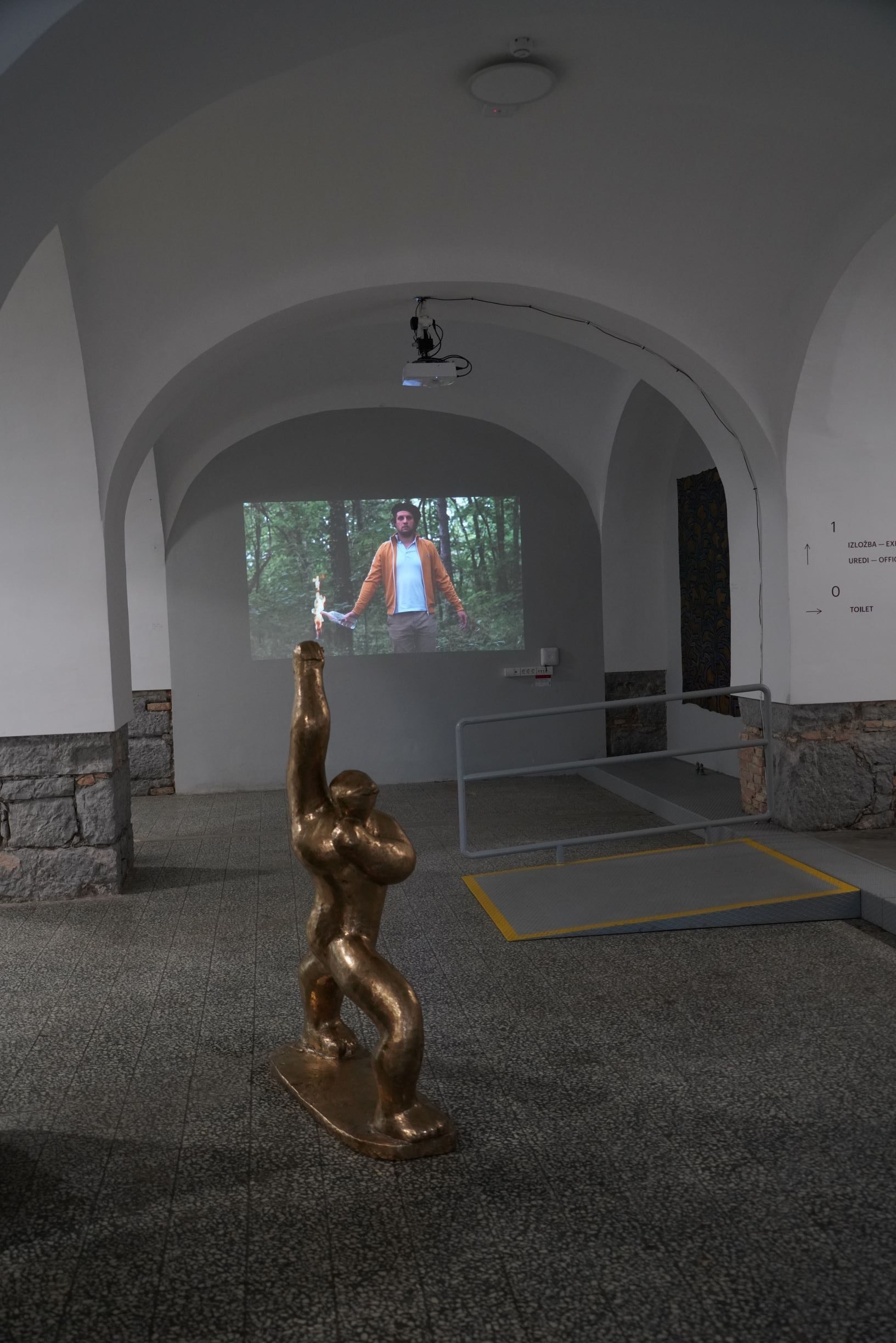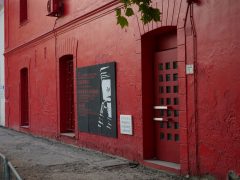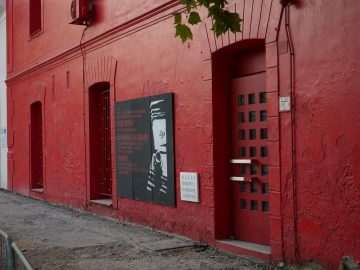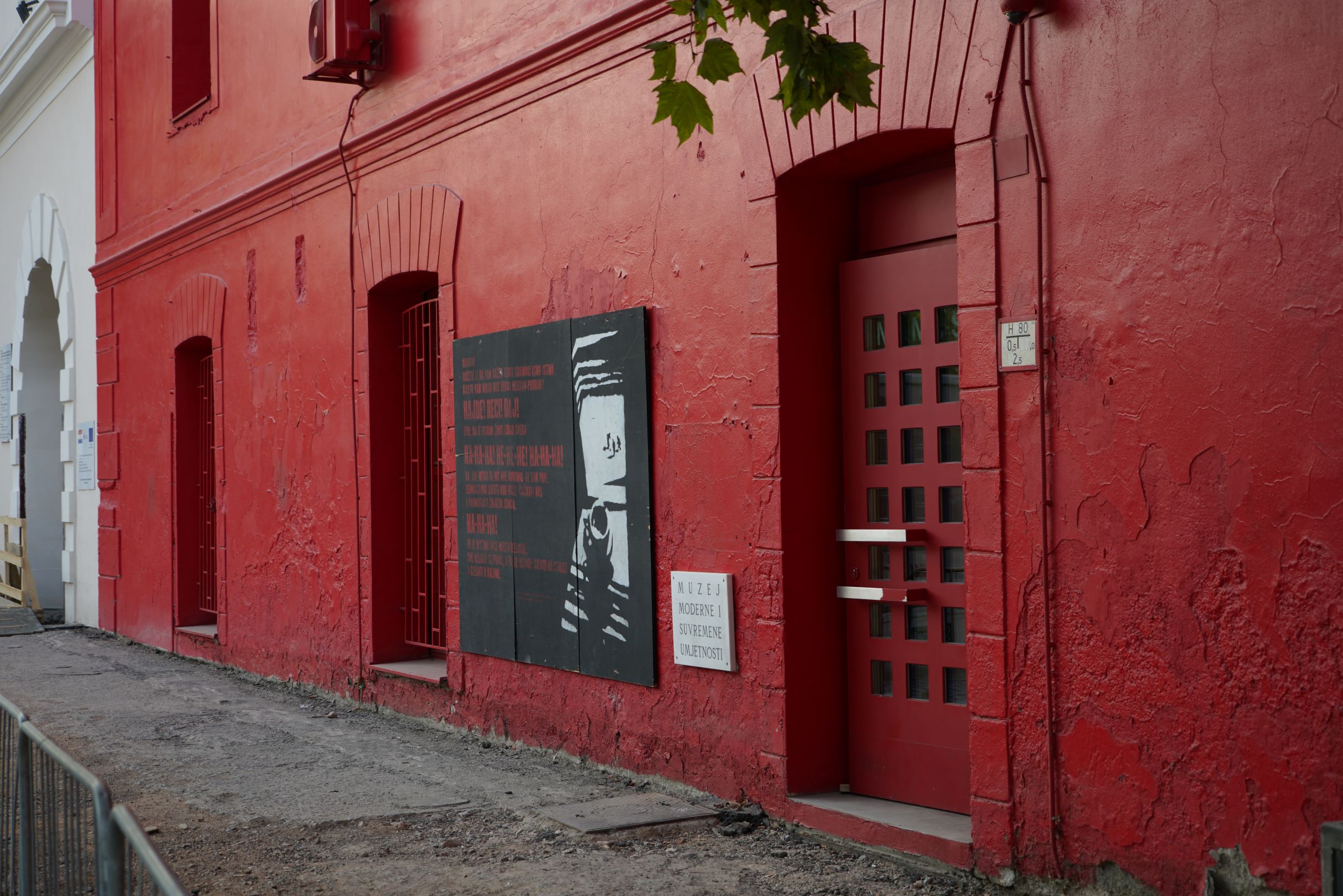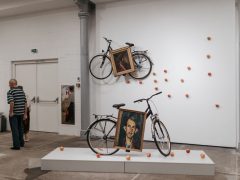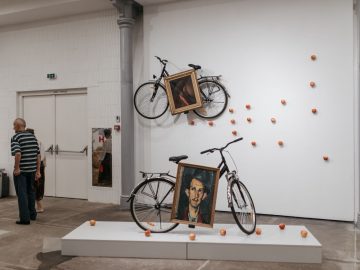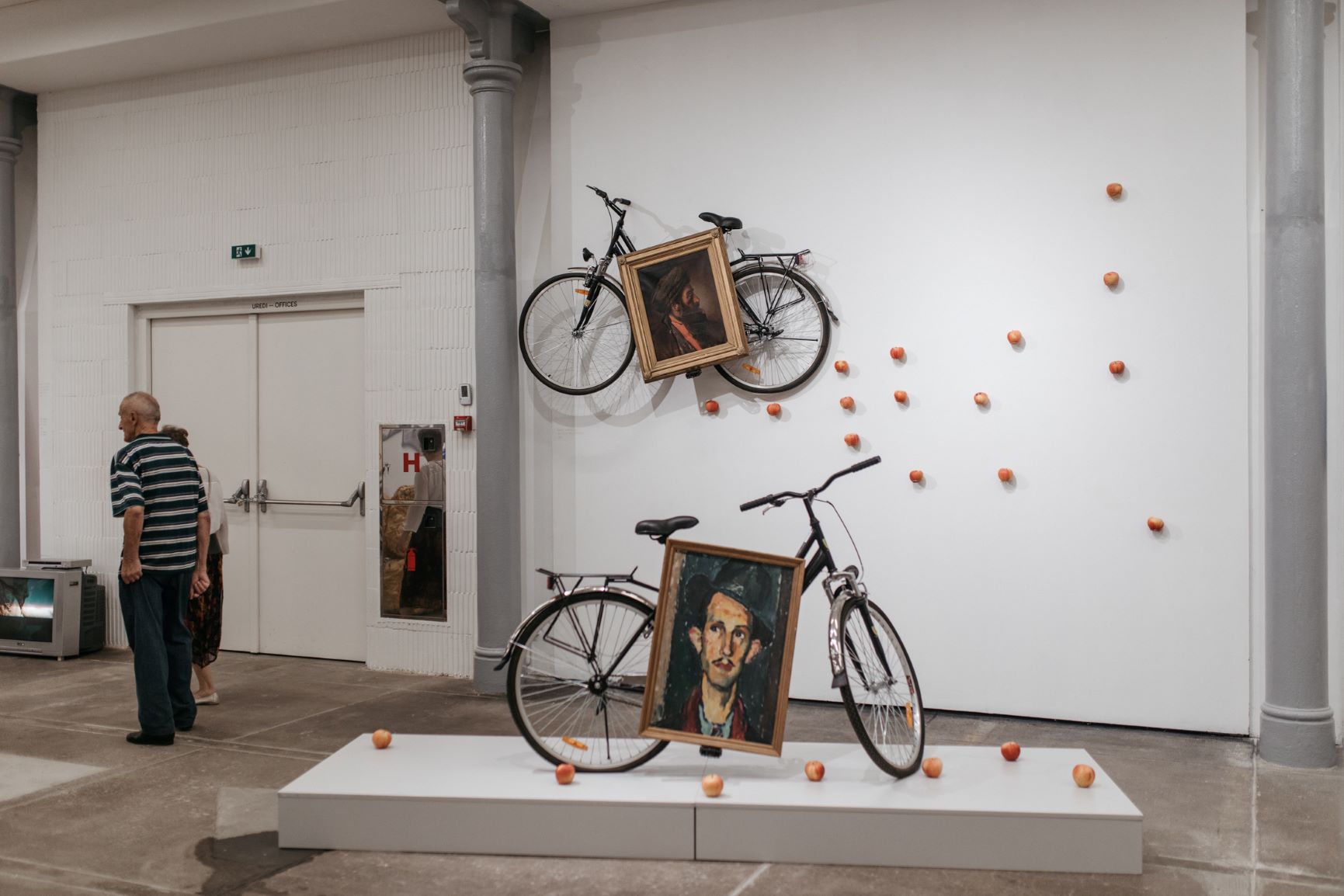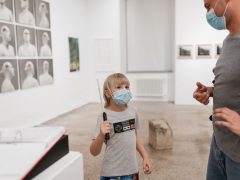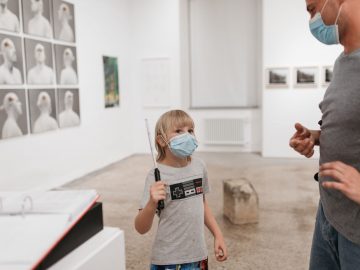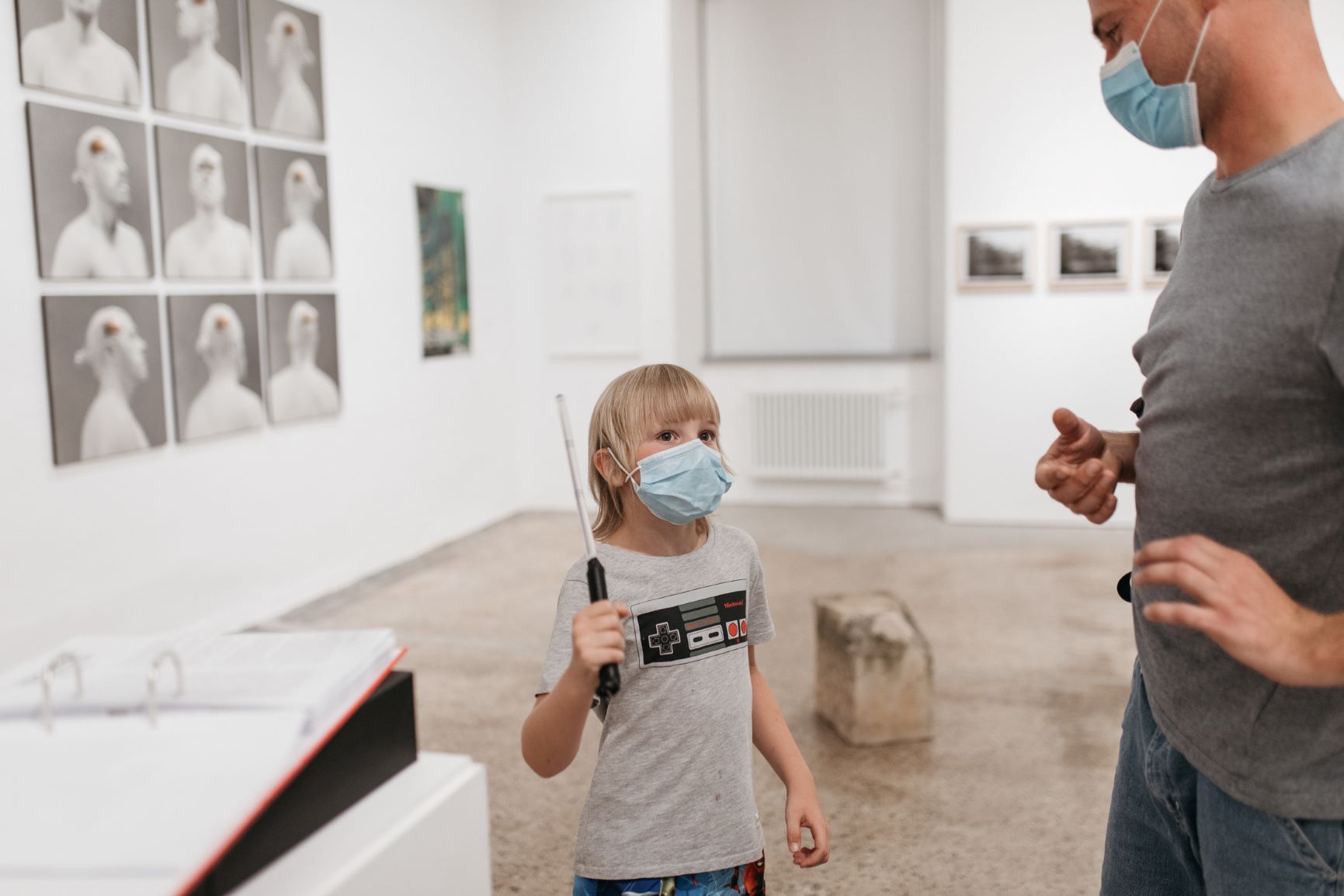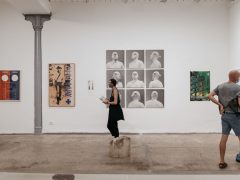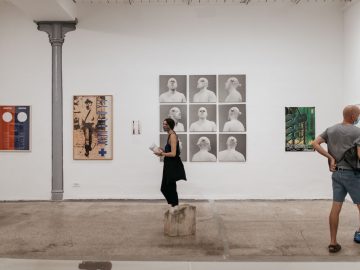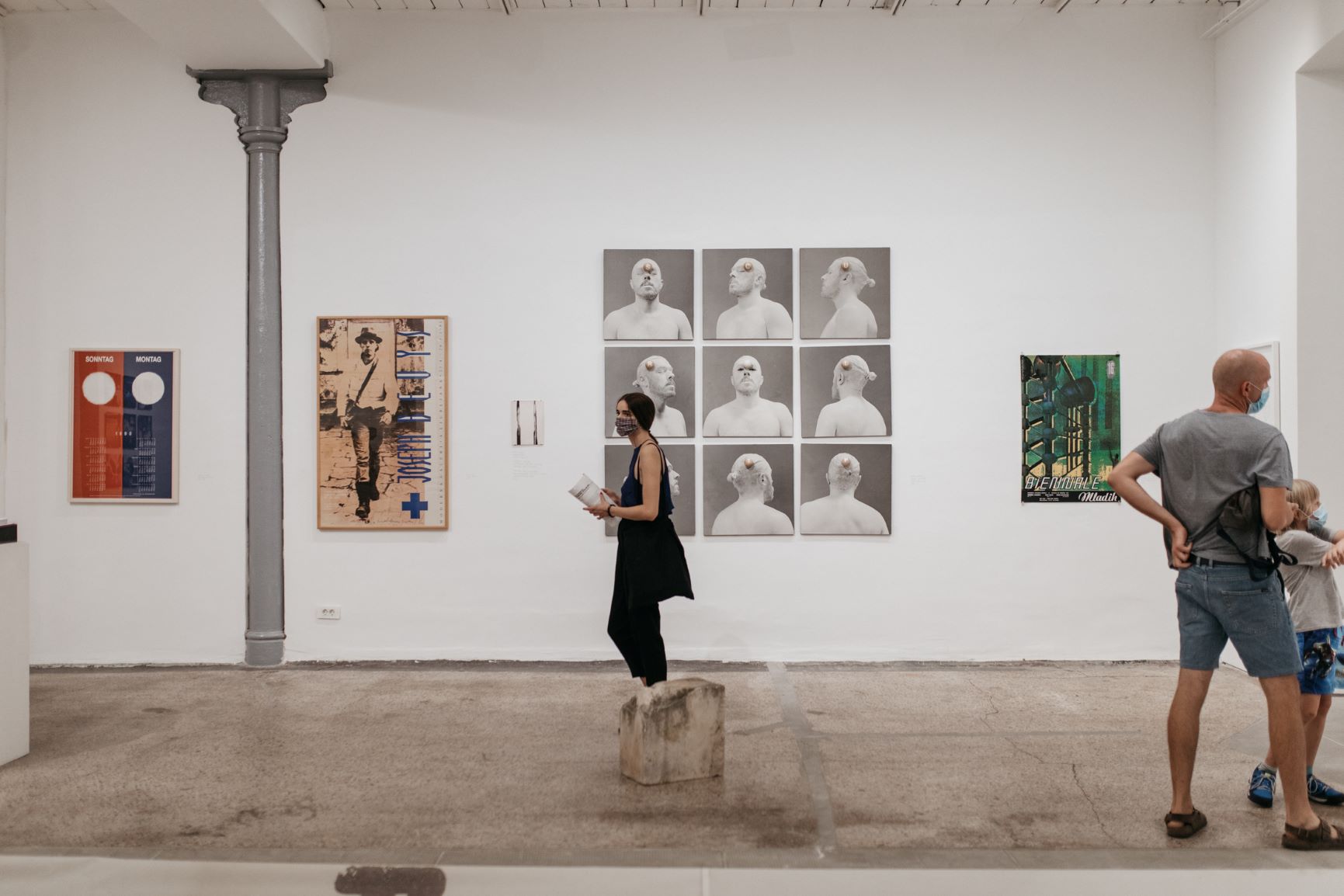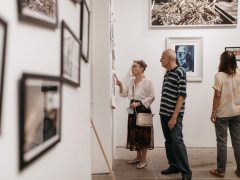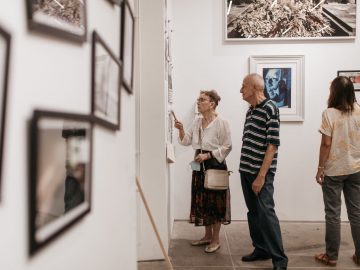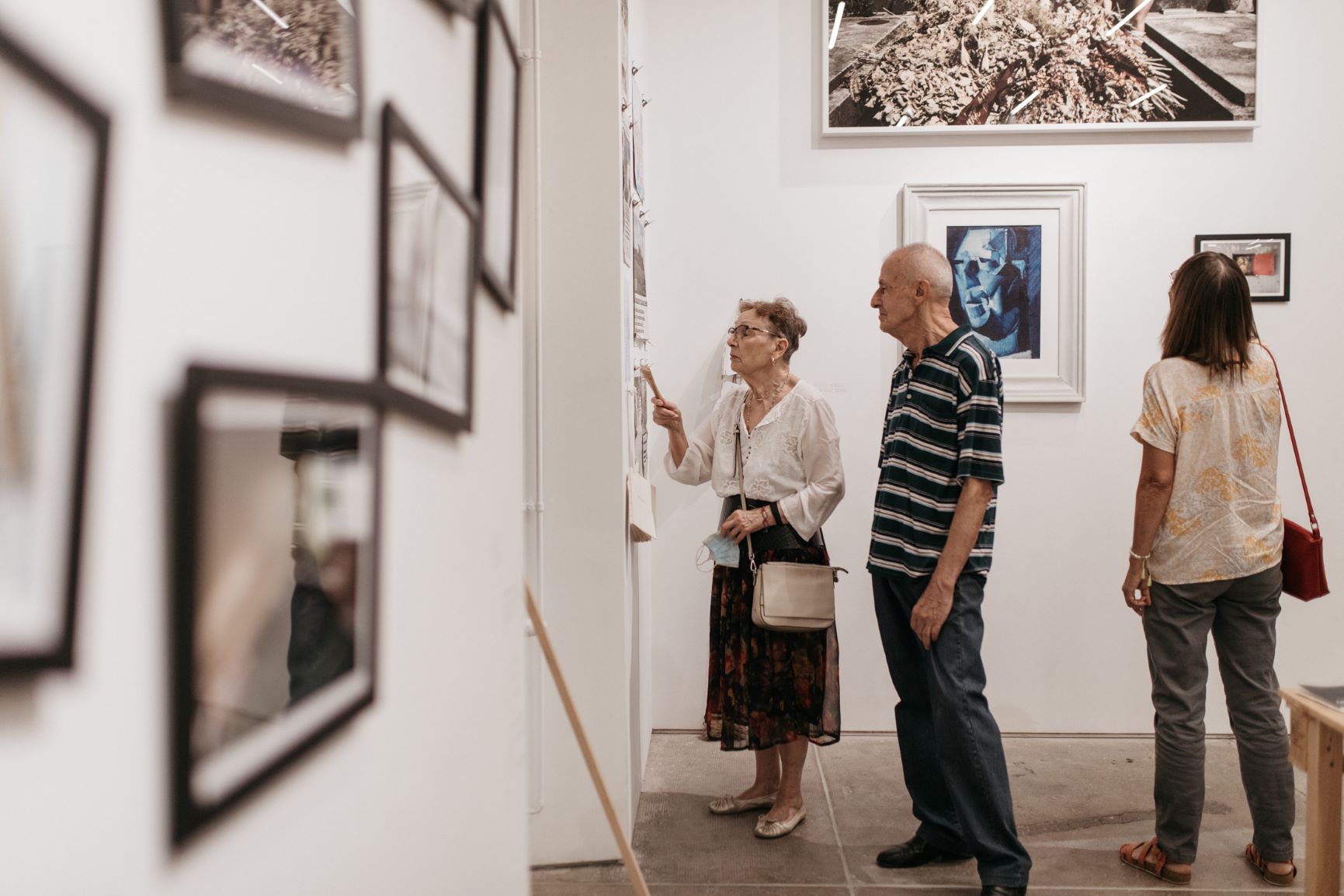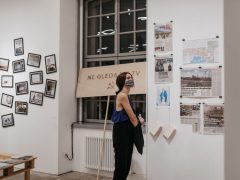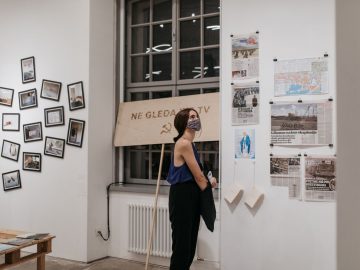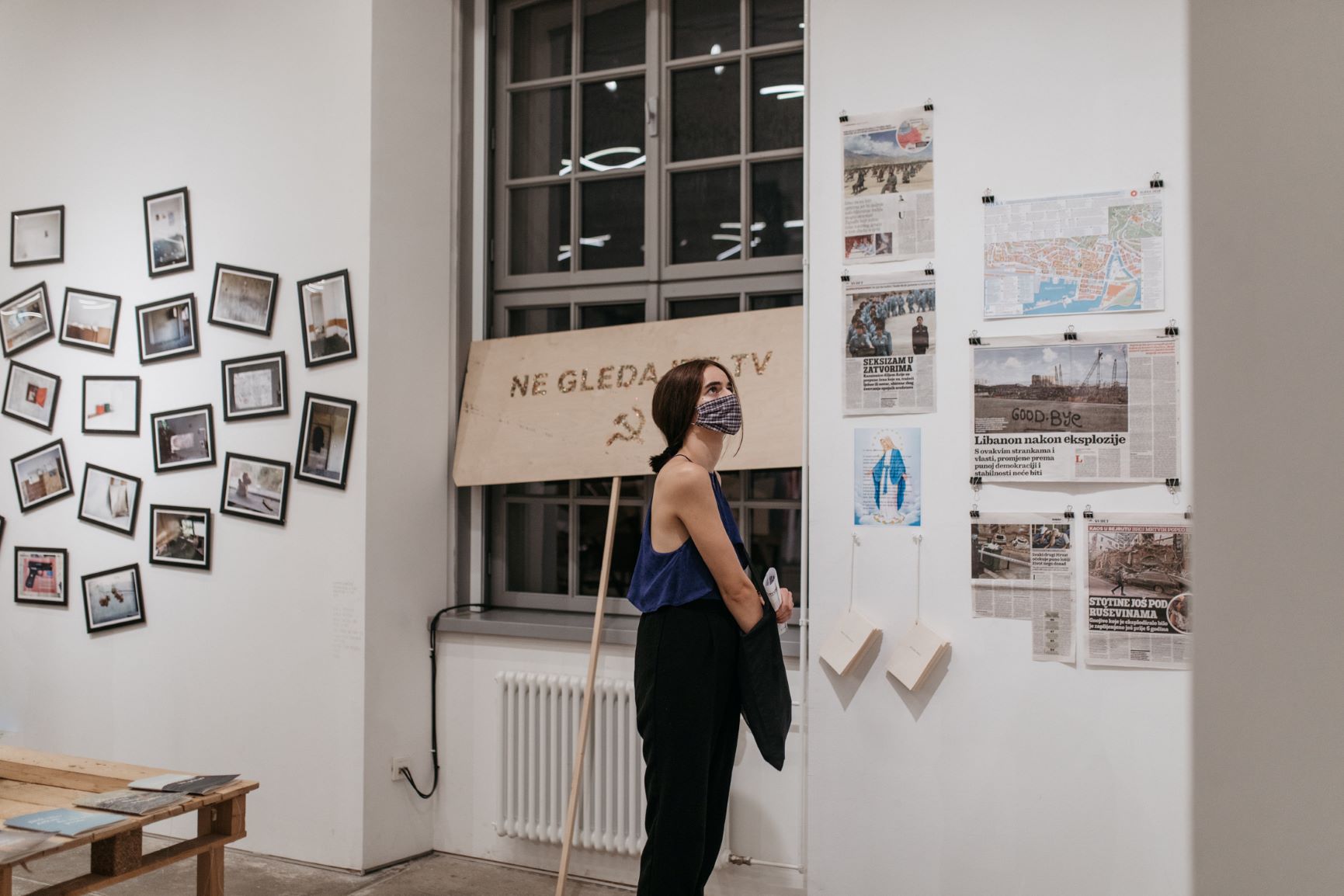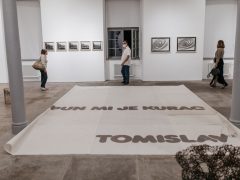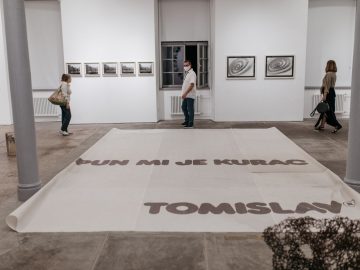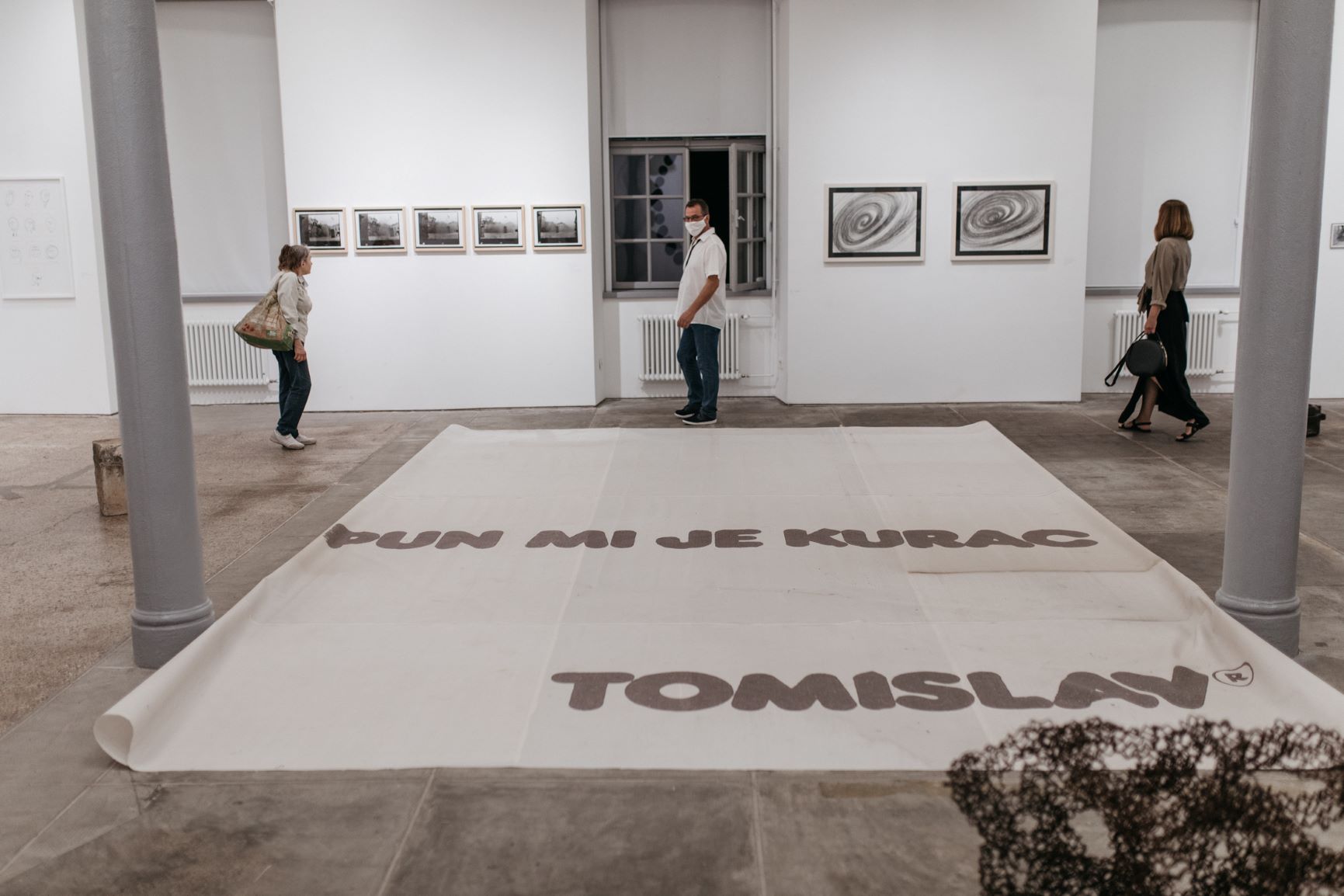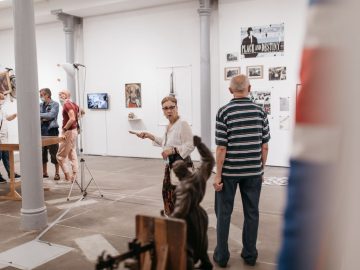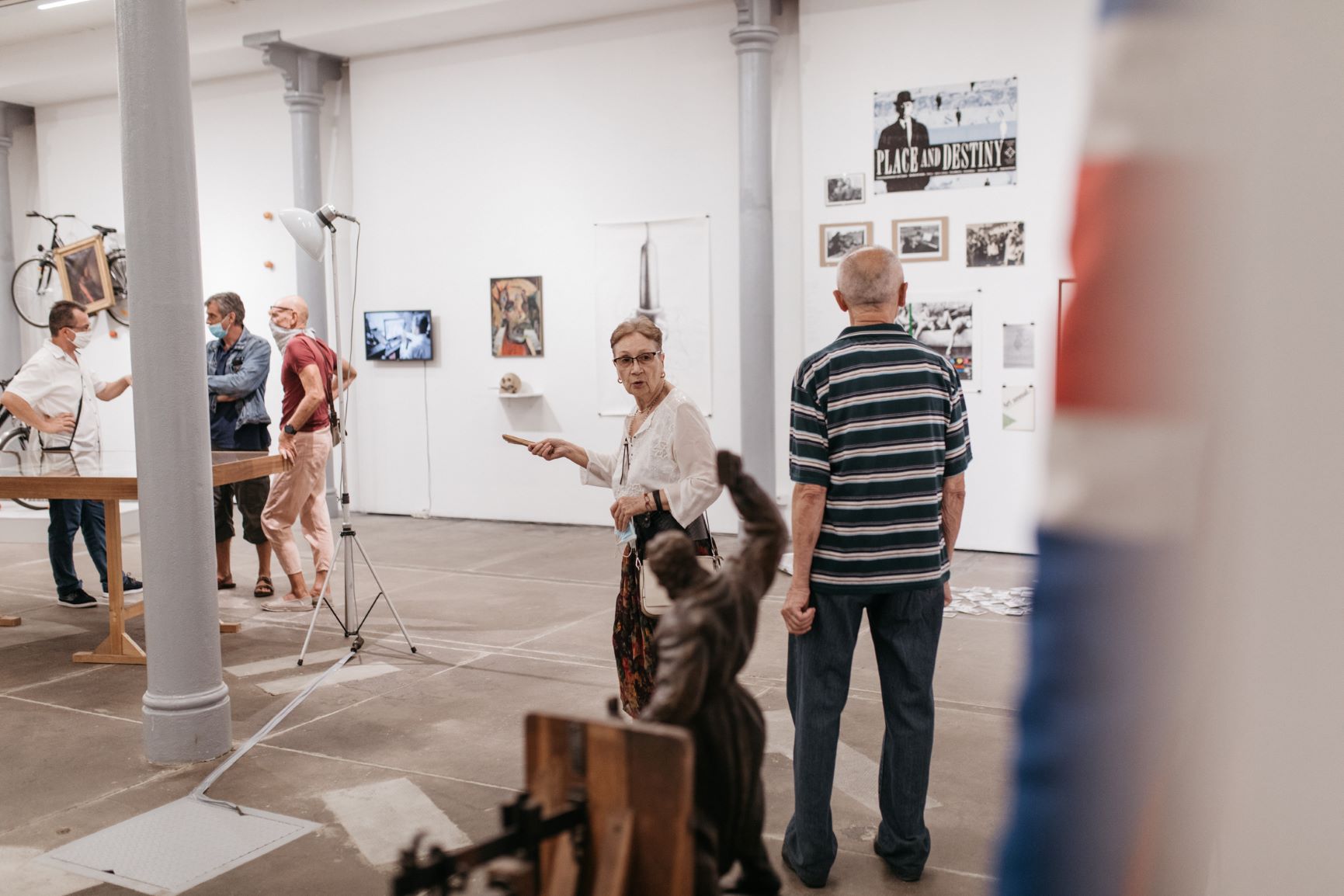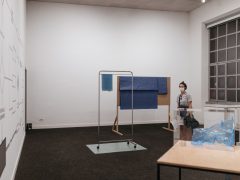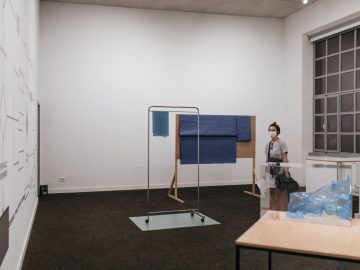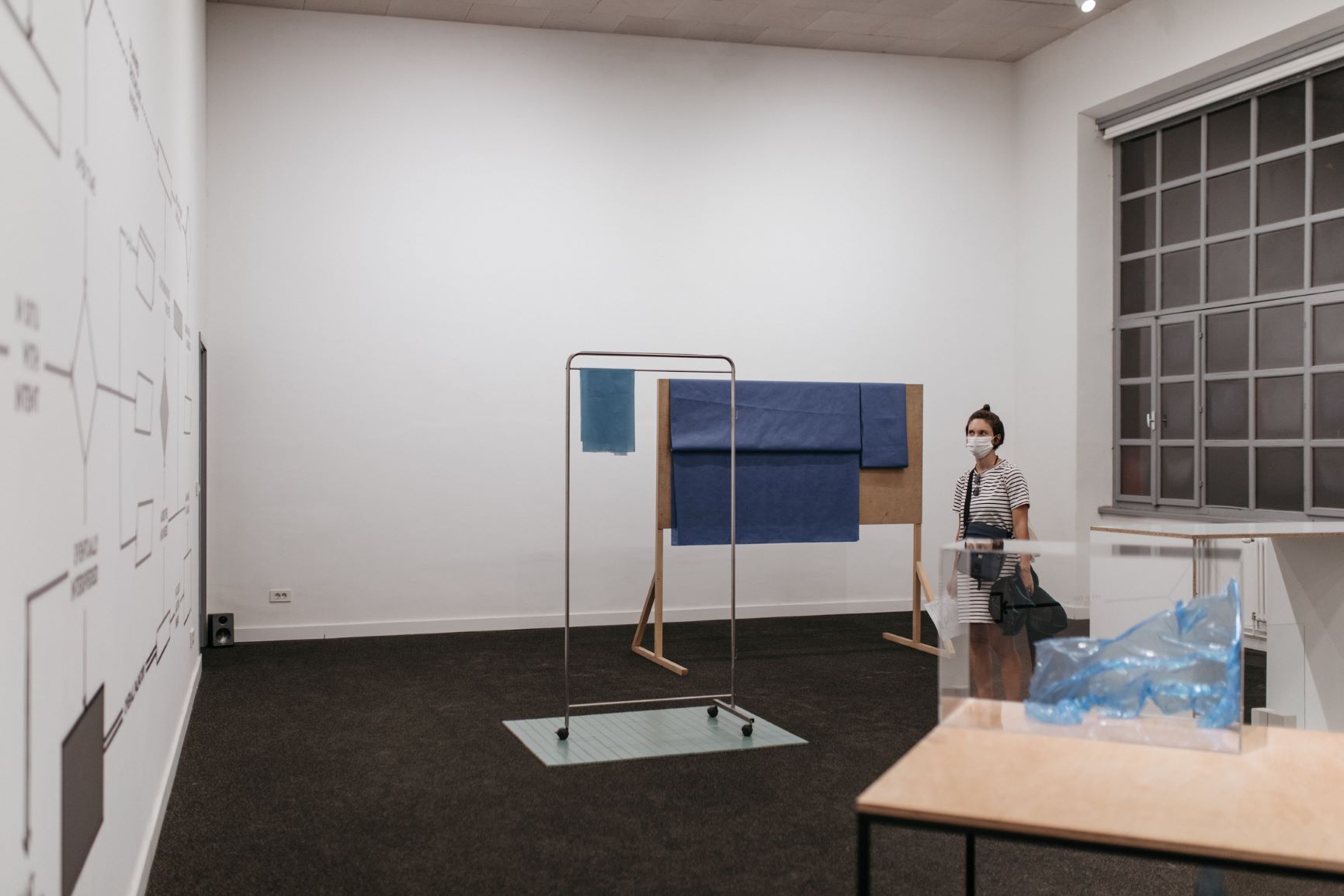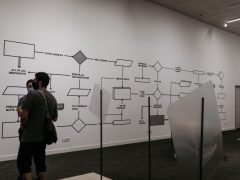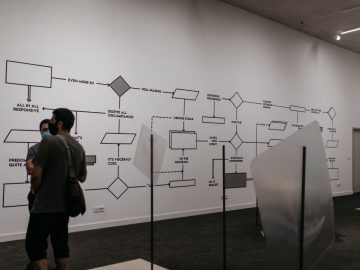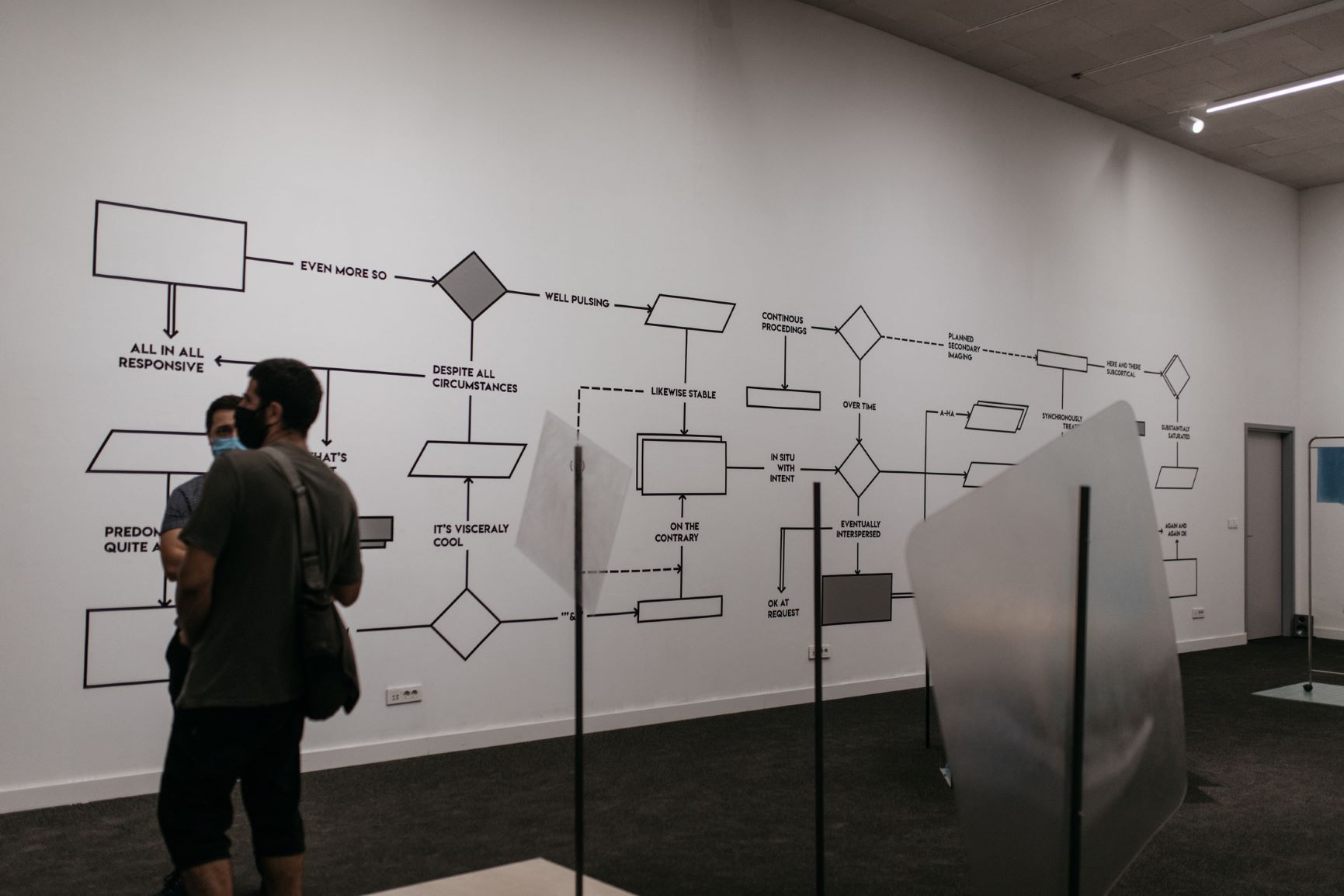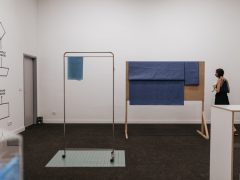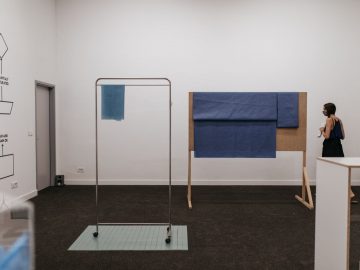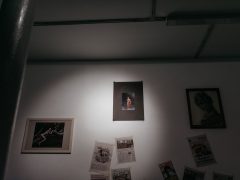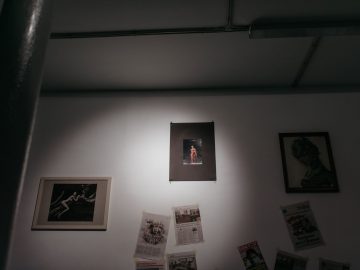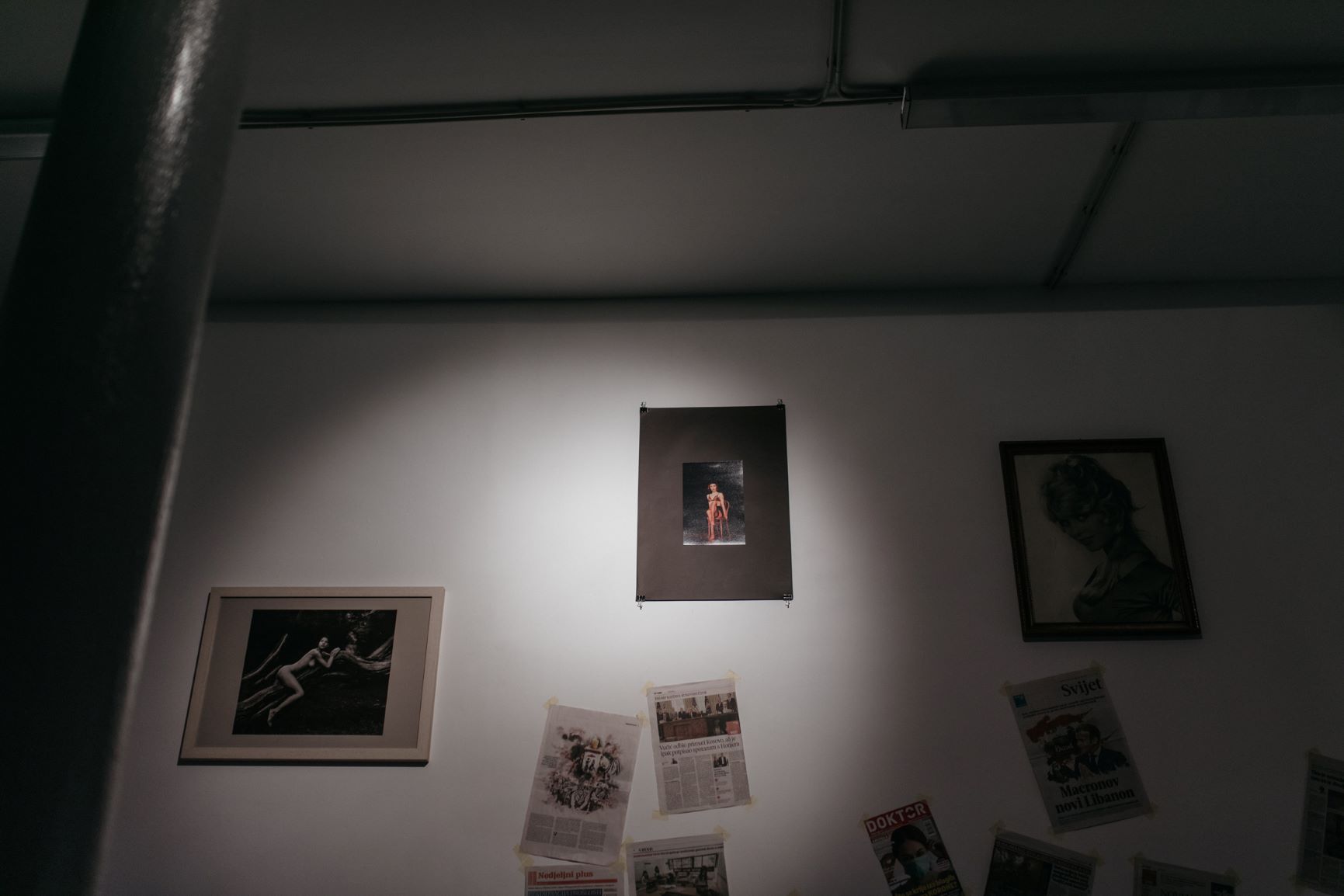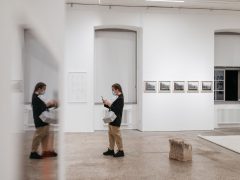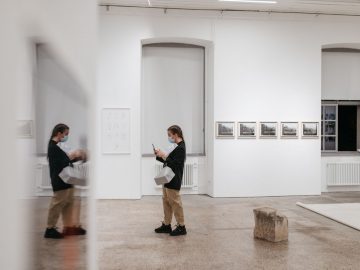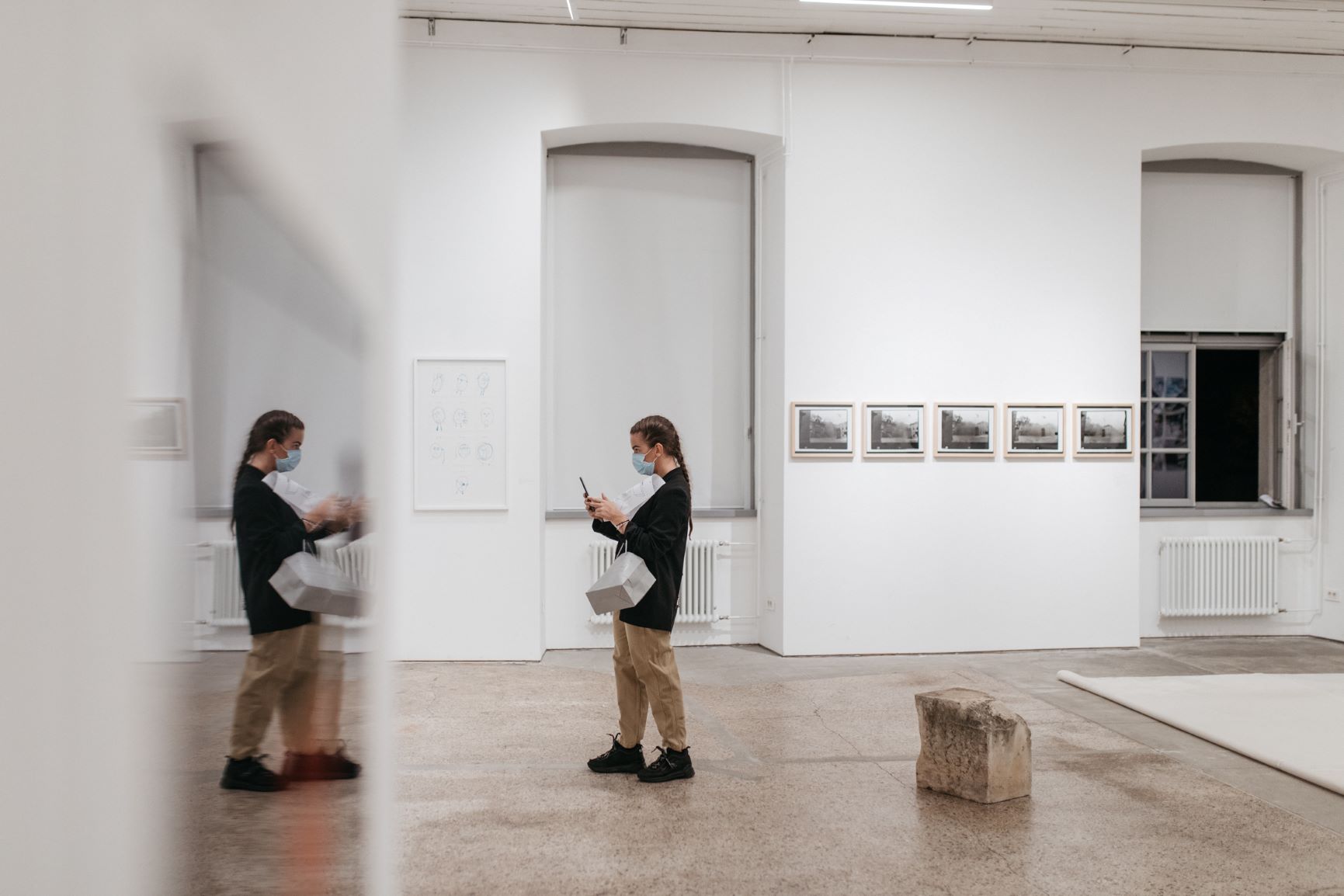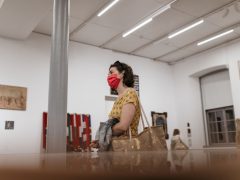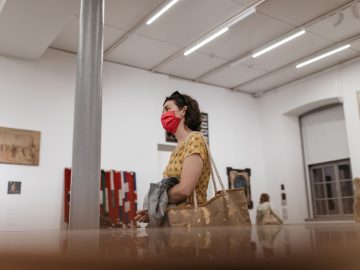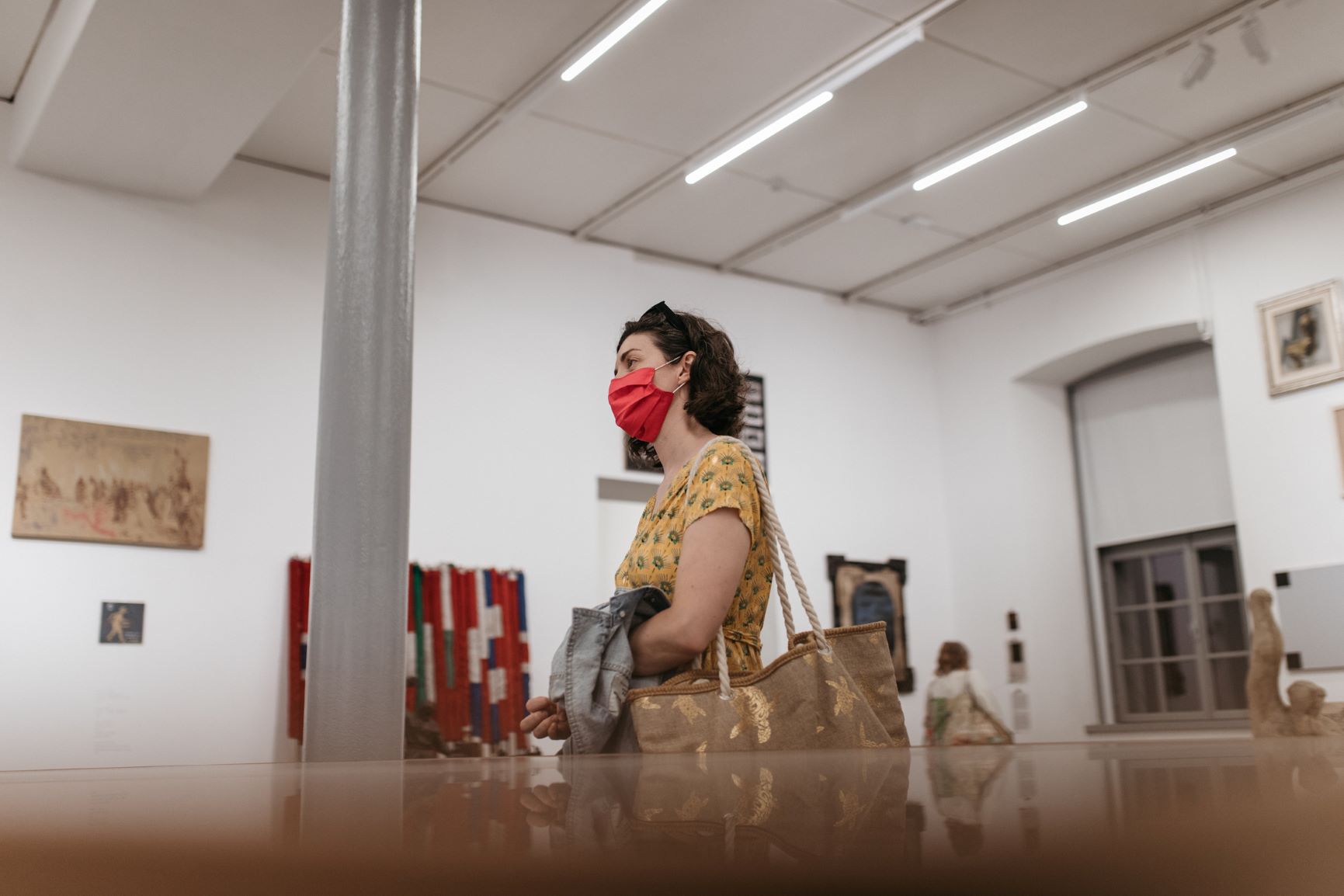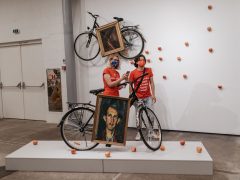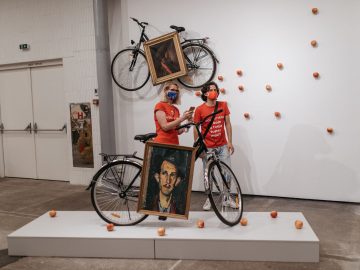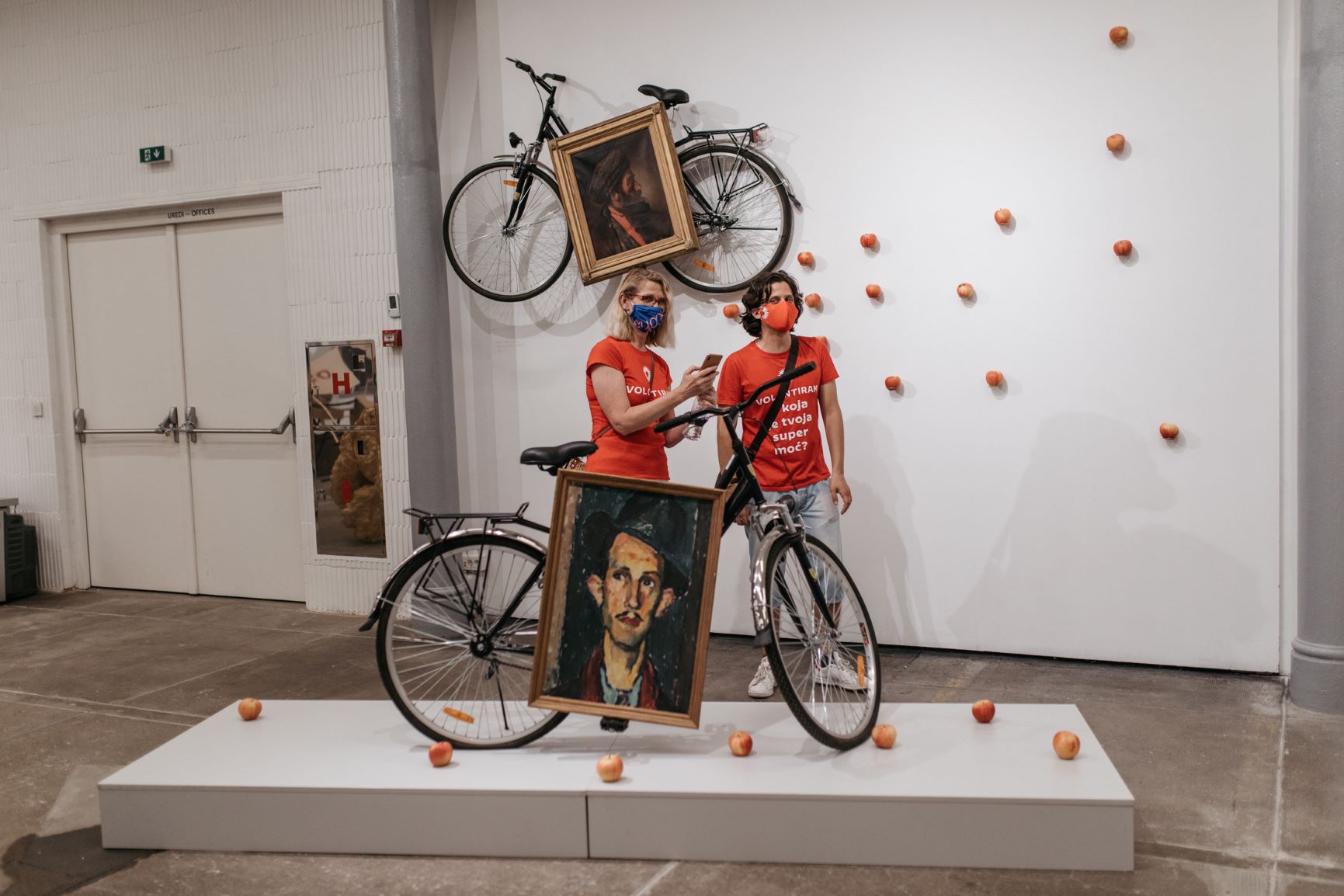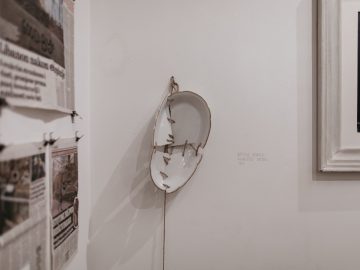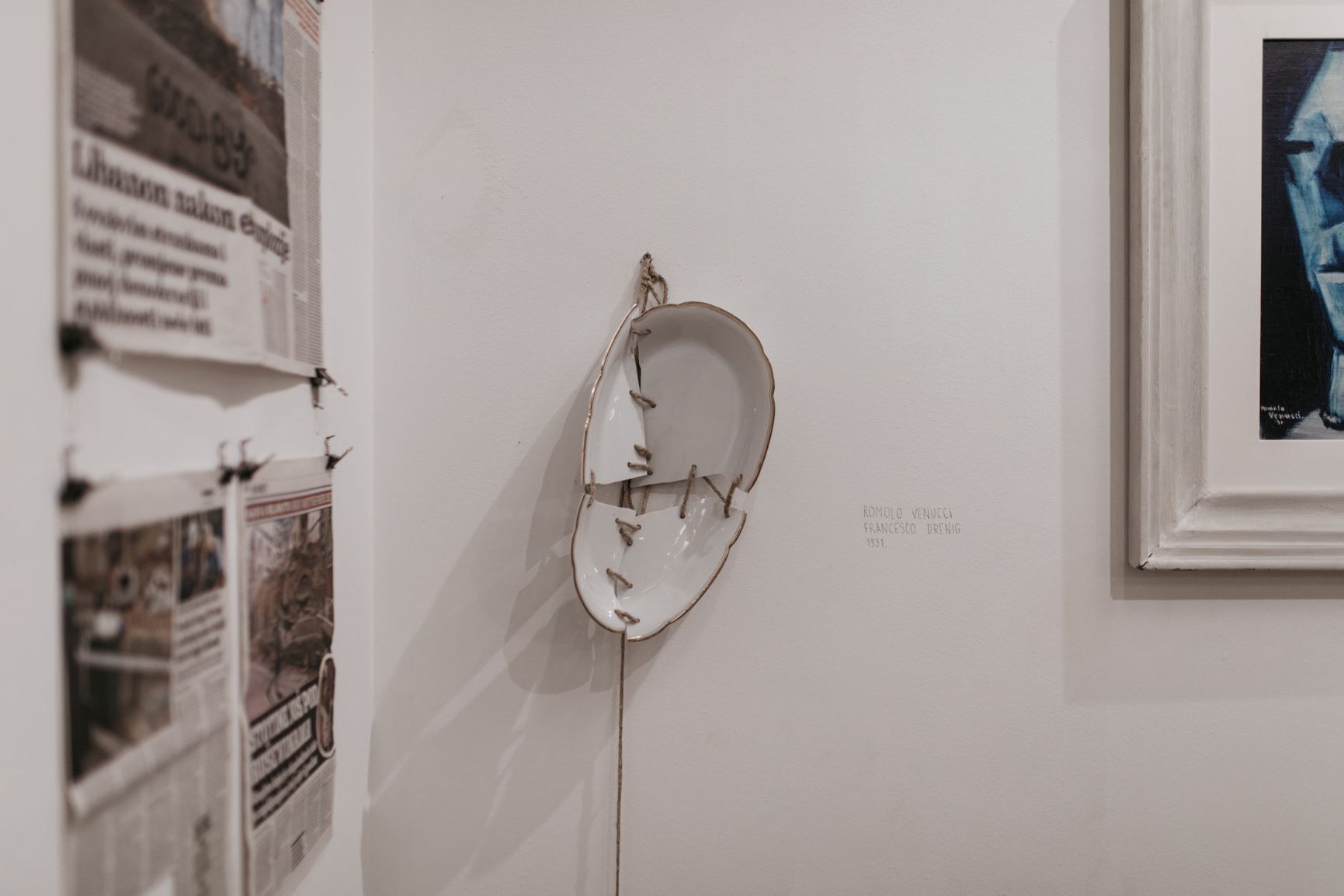ART / WAR / TRANSITION (1990 – 1991 – 2000 – 2010 – 2020 – 2021)
29.7.–15.10.2020.
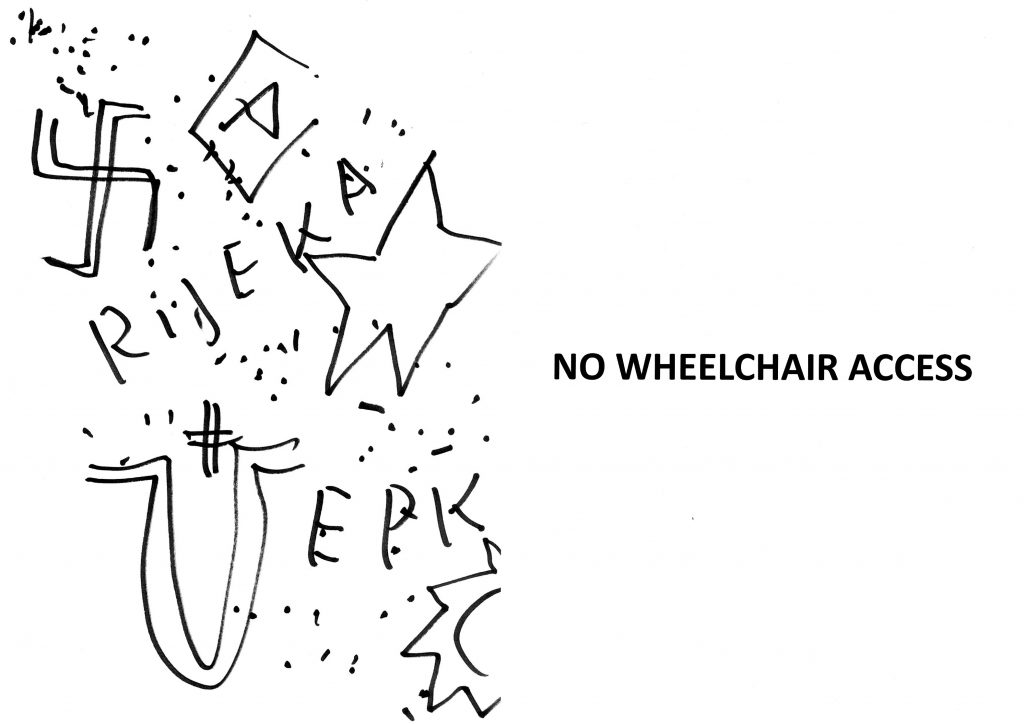
Amidst the dramatic circumstances of the COVID-19 pandemic and the inevitable changes in the realization of the program of Rijeka 2020 – ¬the European Capital of Culture, the Museum of Modern and Contemporary Art in Rijeka has decided to launch a radical exhibition project that presents the key moments, segments, poetics, “medialization” and innovative art practices that have been intertwining on Rijeka’s art scene over the past thirty years.
The opening of the Art / War / Transition exhibition is accompanied by exhibition setup changes that are taking place through phases: July 29th – September 5th – October 10th – October 15th.
It encompasses the period of artistic anticipations at the end of the 1980s and the beginning of the 1990s, which was marked by turbulent and often conflicting, controversial, paradoxical or alternative, subversive, underground, “kynically” provocative artistic personalities and projects, oriented towards critique, deconstruction, retro-avantgarde re-examination and radical interpretation of all major narrations and ideologies (historical, political, religious, ethical, aesthetical, “good taste”). More precisely, it is the period of historical events such as the break-of Yugoslavia, Croatia’s and Slovenia’s independence, the beginning of the war in Croatia and Bosnia and Herzegovina at the beginning of the 1990s. The period is presented in this exhibition by referring to the last, 16th Biennale of Young Yugoslavian Artists (1991) and the early war-related exhibitions (war posters, “DÉJÀ VU – 1941-1991).
With this dynamic and markedly temporal, process-oriented “display”, the authors of the concept (MMSU director Slaven Tolj and curator Branko Cerovac) have decided to present this part of Rijeka’s contemporary art scene by including numerous Croatian and foreign artists in multiple phases of the exhibition, which will stay open until October 2020, with a far-reaching projection onto a possible future and the development of a new “post 2020” art situation (2021 – 2031…).
Zdravko Milić, Zlatko Kutnjak, Jusuf Hadžifejzović, Žarko Violić, Vladimir Gudac, Mirko Zrinšćak, Dalibor Laginja, „Rex Solia C.M.I.V. Veprinac“, Sandro Đukić, Damir Babić, Damir Tripar, Duje Jurić, Sven Stilinović, Željko Jerman, Boris Demur, Zlatko Kopljar, Ksenija Mogin, Marijan Pongrac, Sanja Švrljuga Milić, Goran Štimac, Marijan Blažina, Igor Rukavina, Senka Baruška, „Labis“, „Petja“, „Trafik“, „Teatar Rubikon“, Emil Hrvatin, Lara Badurina, Jasna Šikanja, Melita Sorola Staničić, Predrag Todorović, Đanino Božić, Bojan Štokelj, Mirjana Đorđević, Đorđe Jandrić, Rene Rusjan, „Irwin“, „NK“, „V.S.S.D.“, Bojan Gorenc, Klas Grdić, „Poet Teatar“, Siniša Majkus, Damir Stojnić, David Maljković, Nikola Ukić, Tomislav Ćurković, Damir Martinović Mrle, Lina Busov, Aleksandra Kostić aka Marija Štrajh, Krešo Mustać, Tajči Čekada, Sanja Lisov, Tanja Golić, Alen Floričić, Predrag Kraljević Kralj ( „Termiti“ ), Goran Nemarnik Gus, Krešo Kovačićek, Boris Burić, Zoran Todorović, Milica Tomić, Selma Selman, Greiner & Kropilak, Ivan Kožarić, Marčelo Brajnović, Tomislav Brajnović, Petar Brajnović, Bojan Šumonja, Branka Cvjetičanin, Stanko Pavleski, Srđan Apostolović, Šejla Kamerić, Igor Fistrič, Brane Sever, Živko Grozdanić Gera, Željko Kranjčević Winter, Nemanja Cvijanović, Igor Eškinja, Labin Art Express (Metal Guru), Zoran Štajdohar Zoff („Grč“), I. Mišković ( dizajn časopisa „Rival“ ), Emil Hrvatin (Janez Janša), Marino Paliska, Dalibor Martinis, Zvonimir Kamenar Funči, Viktor Daldon, Tina Gverović, Željko Kipke, Vesna Rožman, Damir Fabijanić, Kata Mijatović, Zoran Pavelić, Darko Šimičić, Luko Piplica, Ana Opalić, Marko Ercegović, Mara Bratoš, Ivan Šeremet, Giovanni Morbin, Marijan Molnar, Vlasta Delimar, Vlatko Vincek, Zlatan Dumanić, Darko Bavoljak, Edo Murtić, Boris Ljubičić, Boris Bućan, Boris Cvjetanović, Goran Fruk, Stanko Abadžić, Rino Gropuzzo, Refik Fiko Saliji, Gildo Bavčević, Antun Maračić, Toni Meštrović, Darko Fritz, Studio Imitacije Života, Jabba International, Boris Šincek, Neli Ružić, Ilija Šoškić, Pavo Urban, D. Bartol Indoš, Ivona Vlasić, Sandra Sterle, Ivana Pegan Baće, Fokus grupa, Pasko Burđelez, Zvonimir Bakotin, Natacha Lesueur, Božidar Jurjević, Goran Trbuljak, Vlado Martek, Sandra Vitaljić, Adolf Zika, Grupa šestorice autora, Stjepo Kaleb, Mladen Stilinović, Milan Milišić, Slaven Tolj, Ben Cain, Vuk Ćosić, Marin Zorić Zorge, Sanja Jureško, Ivan Valušek, Marijan Crtalić, Ivana Popović, Ivana Dražić Selmani, Vanja Pagar, Petar Grimani, Lala Raščić, Bojana Švertasek, Katarina Ivanišin Kardum, BADco., Zlatko Paković, Vedran Perkov, Hrvoje Mitrov, Goran Škofić, Leslie Fratkin, LAE, Milijana Babić, Marijana Pende, Ademir Arapović, Damir Babić, Robert Bebek, Damir Božić – Pišta, Duško Bekar, Pascal Colrat, Karlo Čargonja, Nenad Dančuo, Braco Dimitrijević, Juraj Dobrović, Dragan Karlo Došen, Eugen Feller, Momčilo Golub, Sanja Iveković, Željko Jančić Zec, Ljubo de Karina, Sandra Kordić, Vladimir Kovačević, Krešo Kovačiček, Elda Čekada, Dubravka Lošić, Tereza Nohejlova, Ljubomir Perčinlić, Zmago Rus, Željko Serdarević, Damir Šegota, Nada Škrlin, Dražen Šokčević, Jan Tolj, Ivona Vlašić, Igor Zlobec, Miljenka Šepić, Grupa ABS, Ivica Nikolac, Nicolaj Dudek and Leo Modrčin are just some of the names that will be presented in this exhibition. In addition, we will present numerous designers, catalogues, monographs, books, archive materials, photographs etc.
A special attention will be placed on the dialectics of the genesis and the relationship of tradition and modernity, dominant and alternative art practices, “the unstoppable progress” and “the unstoppable regression”, culture and subculture as well as the undeniable contemporariness of Rijeka’s 1980-1990s music scene, with, modern dance scene, visual and media artists and contemporary theatre. The aim of this project is to recognize the above described art scene on the “frontline of time”, to point to the critical potentials of “the aesthetics of silence” and the value of the “styles of radical will” (Susan Sontag) in the process of changes of cultural and artistic paradigms of the 1990s-2000s.
Gallery
